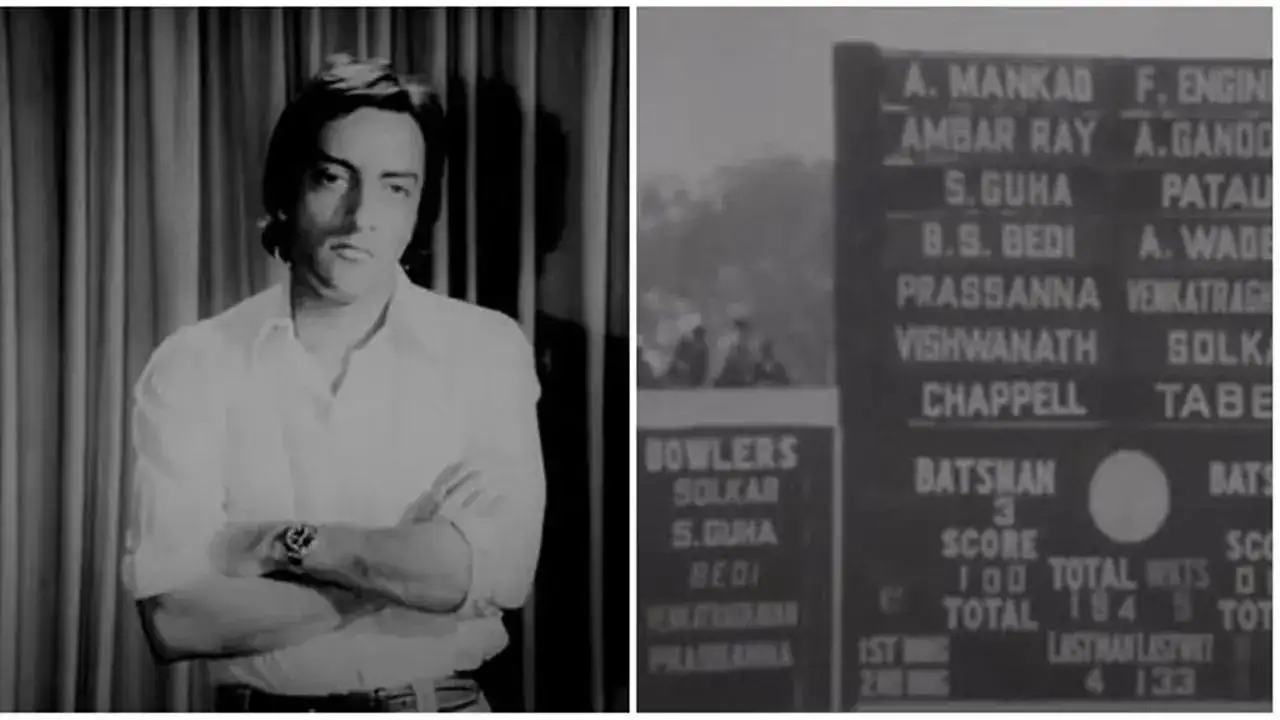
Tiger Pataudi’s Timeless Words Amid Trophy Row. (Screengrab/Youtube)
The debate over the potential renaming of the Pataudi Trophy refuses to die down, and amid such times, it becomes even more important to recollect the voices from Indian cricket’s past that tell us stories about the man whose name remains at the heart of the controversy, Nawab Mansur Ali Khan Pataudi, or simply, Tiger.
Critics of the England and Wales Cricket Board’s proposal to honour Sachin Tendulkar and James Anderson argue that it diminishes Pataudi's contributions, which included fostering a sense of national identity among players. After all, it was the Tiger, who redefined Indian cricket culture during his captaincy in the 1960s.
For many former teammates and cricketers, Tiger’s influence extended beyond runs and results, as it was his charisma, wit, and leadership that transformed the dressing room culture, emphasising unity and pride in representing India over regional affiliations.
“Tiger Pataudi was the first Indian captain to instill a true sense of ‘Indianness’ in the dressing room,” wrote the late great Bishan Singh Bedi once noted in the book titled Pataudi: The Nawab of Cricket.
“Listen fellas, we’re not playing for Delhi, Chennai, Mumbai, Bengal, or Maharashtra. We’re playing for India. Think India, for goodness’ sake…Those words resonated deeply with me — a powerful reminder of Tiger’s lasting impact on Indian cricket,” Bedi added.
While Tiger was born into royalty and enjoyed all the privileges that came with it, he never let it create a divide in the dressing room. “Despite his privileged background, in the dressing room he was just one of the boys — casually grabbing any bat and walking out to face the bowling without a fuss,” stated Bedi.
Beyond the field, he brought charisma, mischief, and intellect in equal measure. “Tiger was my first Test captain, and I cherished every moment under him. With a razor-sharp wit and love for elaborate pranks, he could light up the dressing room, the field, or a post-match dinner with ease.”
His humour had a global appeal. “He was in his element in places like England, Australia, and New Zealand, where his dry humour found an appreciative audience. In India, his jokes were more like verbal bouncers — sometimes going right over people’s heads.”
Although Oxford-educated and comfortable among his Sussex and university peers, his heart remained firmly rooted in India. “Though he loved being around his Oxford and Sussex peers, where cricket was the backdrop to lively chats, Tiger’s soul remained Indian. In an amateur Indian setup, he stood out for his grace and quiet authority. In England, he was the classic gentleman cricketer who never let cynicism or cutthroat professionalism define his conduct.”
In another conversation with Mike Coward, the Australian cricket writer, Pataudi himself once explained the unique challenges of leading India: “Captaining India is not very easy. Captaining any team is not easy but India is particularly difficult – different backgrounds, different languages, different food habits, all those different cultures. I think the best thing to do was to remain as fair as I could and ensure that people never felt that you were being anyway biased or unfair or that you were selecting on a personal basis or something. And, of course, you had to be pretty strong on your strategy and tactics. I think you have to understand the game and the players have to realise, as they did realise, that this chap understands.”
As the BCCI and ECB face growing calls to preserve the Pataudi Trophy’s legacy, Tiger’s words — and the unity he championed — remain as relevant as ever. This isn’t just about a name on silverware; it’s about honouring a man who asked his team to think beyond regional lines and play for India.
(With excerpts from the book Patudi: Nawab of Cricket By Suresh Menon)
Get Latest News Live on Times Now along with Breaking News and Top Headlines from Sports, Cricket and around the world.
